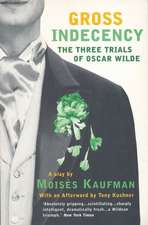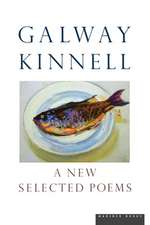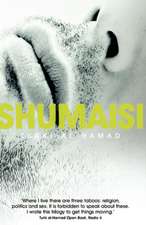The Journalist in British Fiction and Film: Guarding the Guardians from 1900 to the Present
Autor Sarah Lonsdaleen Limba Engleză Paperback – 13 iul 2016
| Toate formatele și edițiile | Preț | Express |
|---|---|---|
| Paperback (1) | 181.99 lei 3-5 săpt. | |
| Bloomsbury Publishing – 13 iul 2016 | 181.99 lei 3-5 săpt. | |
| Hardback (1) | 716.47 lei 6-8 săpt. | |
| Bloomsbury Publishing – 13 iul 2016 | 716.47 lei 6-8 săpt. |
Preț: 181.99 lei
Preț vechi: 209.56 lei
-13% Nou
Puncte Express: 273
Preț estimativ în valută:
34.82€ • 36.36$ • 28.82£
34.82€ • 36.36$ • 28.82£
Carte disponibilă
Livrare economică 14-28 martie
Preluare comenzi: 021 569.72.76
Specificații
ISBN-13: 9781474220545
ISBN-10: 1474220541
Pagini: 296
Dimensiuni: 156 x 234 x 22 mm
Greutate: 0.51 kg
Editura: Bloomsbury Publishing
Colecția Bloomsbury Academic
Locul publicării:London, United Kingdom
ISBN-10: 1474220541
Pagini: 296
Dimensiuni: 156 x 234 x 22 mm
Greutate: 0.51 kg
Editura: Bloomsbury Publishing
Colecția Bloomsbury Academic
Locul publicării:London, United Kingdom
Caracteristici
The author has twenty five years experience as a journalist and currently writes a column for the Telegraph. She also writes a blog and has a strong following on Twitter
Notă biografică
Sarah Lonsdale is a Lecturer in Journalism at City University London, UK. She is also a journalist with twenty five years experience and contributes to the Sunday Times and Telegraph.
Cuprins
EpigraphAcknowledgementsIntroduction: A Century of Guarding the GuardiansChapter One: Edwardian journalist-heroes at the birth of the popular pressChapter Two: Dispatches from the trenches: poets as war correspondentsChapter Three: 'The interview with the cat had been particularly full of appeal': The interwar 'Battle of the Brows' from belowChapter Four: Tinker, Tailor, Soldier, Hack: journalism and espionage in a time of war 1933 - 1979Chapter Five: 'I call my cancer - the main one in my pancreas - Rupert': The Press Baron from Northcliffe to MurdochChapter Six: 'A journalist's finished at forty, of course': Alienation, disenchantment, irrelevance in the Age of AnxietyChapter Seven: From plucky pioneers to dish bitches: the 'problem' of women journalistsChapter Eight: 'Now we don't even have anyone in fucking Manchester': Falling apart in the 'Last Chance Saloon'Conclusion: 'People should probably have newsprint on their hands when they read it': imagining journalism in the internet age in Britain and the USBibliographyIndex
Recenzii
A riveting read for would-be writers ... It's a fascinating bit of academic research ... as well as a great tour through over a century of bookshelves and movie-studio cutting rooms.
Lonsdale's analysis reaches further back in history than most studies of the media ... A first rate-book that amply demonstrates why ... journalists who speak truth to power are needed more than ever.
[A] thorough and entertaining book.
Sarah Lonsdale's book is a welcome addition to this body of research ... journalism seems likely to remain a source of popular culture fascination on both sides of the Atlantic, making historically informed studies like this book particularly important.
From heroes to media scum, this book provides an assessment of how journalists have been represented in fictional form. It also makes a major contribution to considerations of the much-derided 'middle-brow'. It grafts this longitudinal analysis onto a rich and engaging history of journalism itself. Reclaiming the role of the journalist for the contemporary age - journalists and the public, take note - you need each other!
This book essential reading for anyone who wants to know how we've come to feel about journalists and journalism the way we do. Sarah Lonsdale's great and original achievement is to use fiction, film and theatre to trace the Fourth Estate's reputational ups and downs over the last 100 years. This is a work of immaculate scholarship deeply informed by Lonsdale's long and eminent career as a newspaper journalist.
Lonsdale doesn't just chart the fictional journalist's cycle from villain to hero and back again but shows clearly how much and simultaneously, how little has changed over the past 100 years. The one thing that never alters is how journalists persistently live down to others' expectations and take pleasure in their ambiguous reputation. It's a strange trade and Lonsdale's fascinating guide to how others see us should be both a warning and something for us all to aim for. If as a journalist you don't want to anger or irritate people you're in the wrong job.
Lonsdale's analysis reaches further back in history than most studies of the media ... A first rate-book that amply demonstrates why ... journalists who speak truth to power are needed more than ever.
[A] thorough and entertaining book.
Sarah Lonsdale's book is a welcome addition to this body of research ... journalism seems likely to remain a source of popular culture fascination on both sides of the Atlantic, making historically informed studies like this book particularly important.
From heroes to media scum, this book provides an assessment of how journalists have been represented in fictional form. It also makes a major contribution to considerations of the much-derided 'middle-brow'. It grafts this longitudinal analysis onto a rich and engaging history of journalism itself. Reclaiming the role of the journalist for the contemporary age - journalists and the public, take note - you need each other!
This book essential reading for anyone who wants to know how we've come to feel about journalists and journalism the way we do. Sarah Lonsdale's great and original achievement is to use fiction, film and theatre to trace the Fourth Estate's reputational ups and downs over the last 100 years. This is a work of immaculate scholarship deeply informed by Lonsdale's long and eminent career as a newspaper journalist.
Lonsdale doesn't just chart the fictional journalist's cycle from villain to hero and back again but shows clearly how much and simultaneously, how little has changed over the past 100 years. The one thing that never alters is how journalists persistently live down to others' expectations and take pleasure in their ambiguous reputation. It's a strange trade and Lonsdale's fascinating guide to how others see us should be both a warning and something for us all to aim for. If as a journalist you don't want to anger or irritate people you're in the wrong job.













